Our Love Affair With Tashkorgan
We love the small town of Tashkorgan (also known as Taxkorgan and Tashkurgan), the last Chinese settlement before the Pakistan border. This was our fourth visit and although it had changed dramatically since our last stay in 2011, Tashkorgan still retained its remote frontier town atmosphere and exotic charm. To our amazement, we had noted a similar charm with the tiny, backwater village of Bulgan in far western Mongolia, on the Mongolia-China border.
Perhaps border towns just have that exciting, yet certain intangible feel of the unknown - or is it just the seduction of a border crossing? After all, it was Tashkorgan's tantalising border location which we first visited in 2007, that led us to finally deciding to cross the Khunjerab Pass, and visit Pakistan for the first time in 2009. To our utmost astonishment, it was a love affair at first sight with Tashkorgan - and then even more surprisingly, with Pakistan.
Nestled at an altitude of some 3,600 meters against the foothills of the magnificent Pamir Mountains and just 120 kilometers from the Pakistan border, Tashkorgan is surrounded by moist alpine pastures dissected by the Tashkorgan River braided into a tangle of numerous fast flowing, snow fed streams. The environment although extraordinarily pretty, is extremely tough with freezing cold winters and cool dry summers. Bordering the mighty Taklamakan Desert, Tashkorgan's cold desert climate experiences a yearly average of only 68.2 mm per year (or just 2.7 inches) of rainfall. It is interesting that when you are in Tashkorgan, you would never guess it is such a dry environment. The massive snow melts from the surrounding high ranges result in fast flowing streams and rivers, and create a very lush and moist alpine environment. Tashkorgan looks deceptively like a moist cool climate town; the dead give away is the surrounding arid Pamir Mountains - and the frequent dust storms.
The majority of the town's population are ethnic mountain Tajiks, most of whom speak the Sarikoli dialect which interestingly is not spoken in Tajikistan. Apparently, there is no written form of the language, making it a very difficult language to learn for foreigners. The Tashkorgan Tajik people display a strong Central Asian influence and like the Uyghurs, they do not look at all Chinese. Many we have observed have quite European features with blonde complexions and occasionally red hair, and green eyes.
Tashkorgan means "Stone Fortress" in Turkic languages, and refers specifically to the town's crumbling stone citadel which is thought to be more than 2,200 years old, and (according to some schools of thought), was described by Ptolomy in his accounts of travel on the Silk Road around 150 AD and later by Marco Polo in his epic travels of the region during the late 1200's.
Tashkorgan was a significant staging post on the old Silk Road. Most caravan routes converged here leading to Kashgar in the north, Karghalik to the east, Afghanistan to the west and Pakistan to the south-west.
We have always been curious as to why Tashkorgan had such an immediate, and long lasting impact on us. But we expect it is no wonder given its magnificent setting, close proximity to Pakistan and Central Asia, its eclectic mix of Tajik, Uyghur, Kyrgyz and Chinese ethnicites and extraordinary tapestry of cultures - and of course being a border town oozing with such a rich trading history.
A Dawn Walk Through the Streets of Tashkorgan
We were sorry we had such a short time in Tashkorgan and were determined to include at least a short walk through the town before we headed off on our bus journey to Pakistan.
A just emerging dawn light was perfect for our wanders through the lonely town streets. Like most Asian centres, Tashkorgan at 6.00 am was still sleeping. The wide tree lined streets of Tashkorgan were, as usual scrupulously clean. A lone woman street sweeper with a long handled straw broom walked slowly into a misty distance. It was eerily quiet. We had Tashkorgan gloriously just to ourselves.
Despite a large number of massive new government cement block buildings, we were relieved to find a lot of the old parts of the town we remembered so well. The long street markets adorned with Islamic styled architectural trim and fitted with roller doors were all closed, as was nearly every other shop in town. It was indeed a very weird sensation to experience such quiet in a market place which has always been so frenetic; bustling with people, motor cycle carts, electric scooters and vans.
Our wanders took us to the main town square with its characteristic white tower topped by a sculpture of a flying eagle, the symbol of Tashkorgan and a reference to its eagle hunting past. As we walked past, a beam of the soft dawn light just caught the tips of the eagle's wings. Alan said quietly "This is SO special". There was no doubt about it. For us Tashkorgan is inexplicably, just special.
Past the National Cultural and Arts Centre we walked a short distance before we came across a rather funny reminder of our first trip to Tashkorgan in 2007 - the old Stone City Hotel. We had initially booked into the newly built Crown Inn, but by the time we arrived it had closed for the winter season and our driver Mukhtar had decided to take us instead to the Stone City. To our delight we were "upgraded" to what was probably the Presidential Suite - but it didn't quite make the grade...
Here is my description:
.".......Although it was undoubtedly a lovely room, we found ourselves in quite a comical situation. Nothing at all worked - except thank goodness, the heating. An enormous filtered water machine was impressive but it didn't work and the water looked like it may have been there since Marco's days. Electrical power points hung precariously on their coloured wires out of the walls and sparks flew when we tried to turn on any appliances. Any maintenance had obviously been done very economically and our lovely chandelier light fitting in the lounge had been fitted by a huge hole crashed through the plaster.
But thankfully, we had our own toilet - and it was western. It didn't matter that it leaked dubious brown water over the entire bathroom floor or that the cistern worked by pulling a saturated wet rope. It was ours and we didn't have to share! I may add that although the refrigerator itself didn't work, the refrigeration facilities were fantastic. By early evening it was bitterly cold and so we just put the beer out of the window and we had the coldest beer we had to date in China! ....."
We laughed as we walked through the hotel's entrance to what was our old room, taking photos of the window where our beer had nearly frozen.
Sadly we were out of time. We had to be at the international bus depot at 10.00 am, and had no time to walk any further. We quickly made our way back to our hotel.
A Sumptuous Breakfast and Farewell to the Crown Inn Hotel
We arrived to find our chef and waitress anxiously waiting for us. Despite being the only guests, they had prepared a most sumptuous breakfast, including a variety of fruits and cereals followed by a mind boggling feast of fried eggs, sausages, grilled tomatoes, fried potatoes, pumpkin and salads - as well as toast and an assortment of jams and other spreads. And just as we felt we could do no more justice to our fine meal, the chef brought out a large steaming hot bowl of spaghetti Bolognese!
We would certainly recommend the Crown Inn Hotel, Tashkorgan. Our stay was comfortable and friendly, and the hotel is just minutes from the main centre of town (see review below). There are also spectacular views of Tashkorgan and the Pamir ranges from the hotel roof top. Just be careful not to photograph the nearby military base - as we once did, quite accidentally.
We were sad to be leaving. It would most probably be the last time we would visit the hotel and also Tashkorgan. But then again, we have said that on many occasions.... and who would have thought we would have returned for the fourth time?
The manager came out to say goodbye. All the staff had been terrific, and despite our language difficulties, they had done their utmost to please us. It had been a lovely, if rather short stay.
We Begin Our Misadventures: Our Bus Trip Which Nearly Didn't Happen
We agreed that with our lack of language, trying to catch a taxi from our hotel to the international bus depot would probably end up in disaster, and so we decided to go by foot. Even if it meant wheeling all our luggage on a two kilometer walk, at least we knew where we were going - well, this time...
As mentioned, initially we had been concerned that should there not be sufficient passengers travelling to Pakistan, our public bus may have been cancelled. And even though our guide Abdulrahman had assured us that the buses did proceed every day, we still had that nagging feeling from our past trips that "what can go wrong will go wrong". It always did. But we need not have worried about sufficient numbers...
I am not sure whether we were relieved or dismayed when at the end of our long walk to the terminal, we came across literally hundreds of people waiting to buy their bus tickets to Pakistan. There were no queues and certainly no order; people pushed and shoved and in one instance an ugly fist fight broke out between two Pakistani men. There was only one ticket seller, whom we assumed was our Tajik "friend" Akhil. And buying bus tickets was no easy exercise, with each person taking up to fifteen minutes to have their surrendered passports checked, checked, and re-checked - and finally the tickets issued.
And then the ticket office closed. It looked to us as if Akhil had "thrown a wobbly" and sick of the crowds, he decided to have a break, slamming the door behind him. Needless to say the angry and frustrated crowds went wild, shouting loudly and making violent threats to the unfortunate Akhil. It was a pretty nasty scene and becoming a bit tense for Alan and me, who instead of progressing in the "queue", were actually going backwards following the numbers of people pushing in.
The Chinese authorities are usually admirably efficient but this day turned into a bureaucratic nightmare. There was no information at all. Even the few Chinese speaking passengers didn't have much of an idea what was going on either. One very large Chinese media guy strapped with an oversized camera and sporting an enormous back pack full of movie camera gear, became everyone's friend. He spoke excellent English and was our only conduit between the unhelpful immigration officials and the crowds of Pakistani passengers - and us. Not that it helped much. There was so little information.
As people do in a crisis, we soon made firm friends with a number of very friendly Pakistani men who spoke excellent English and a young Korean back packer who was totally on her own. I was amazed that quite a few of the Pakistani young men groomed themselves to look like 1950's rock stars. One was the image of Elvis Presley with his oiled black hair slicked back with a carefully coil at the front, and wearing skin tight black leather pants and pointy toed shoes. In the midst of the more traditional men wearing their shalwar kameez, white caps and long beards, it was really quite amusing.
We waited in the hot sun until Akhil returned and after a long wait in the "queue" which became more like a stampede, Akhil suddenly recognised me in the crowds (I guess as one of Abdulrahman's foreign tourists) and sold me the last two tickets out of China. Our Korean friend was not so lucky. And neither were another 80 or so passengers.
I almost felt guilty at being the last person to buy tickets. It was awful to see the dejected faces of those who missed out and who would most likely spend the weekend in Tashkorgan before the border crossing opened the following Monday. But ashamedly, I did not feel quite bad enough to part with my precious tickets... Had we had to wait until Monday for our bus, it is highly likely that we would have been forced to cancel our trip to Pakistan. There would have been just not enough days left to travel from Sost to Islamabad.
Our Chinese media friend suddenly returned from the depot announcing the Customs and Immigration internet had gone down and as it was used to scan our passports for our departure, there would be no transport leaving until it was fixed. Was this really China - the country that could do ANYTHING? But as our media friend laughed "It doesn't matter - there are no buses anyway!"
We later found out that there was only one Chinese sleeper bus running, which seated only forty people - and all the bus tickets had been sold. It is hard to believe that the Chinese officials could not - or would not - organise more buses so additional sleeper and mini buses had to be brought in from Pakistan, adding another six hours to the departure of any form of transport. And even these could not accommodate all the passengers wanting to reach Pakistan.
The crowds which had surprised us were a result of the end of Ramadan, with people desperately trying to get back to Pakistan for the Eid Festival - when the border apparently closes for five days (we were still cursing ourselves for not checking the Ramadan dates prior to our trip and thankfully, we only found that out some time later in the day). Exacerbating the situation was a major international trade exhibition in Kashgar which had attracted a large number of Pakistani companies, many of whom were carrying all their trade gear.
The international bus terminal comprised an enormous Customs and Immigration building and a massive concrete "Tiananmen styled" square. No passenger was allowed the luxury of entering the building, despite there being absolutely no shelter nor seating in the square. And there was certainly no water of food we could buy. On a hot bright sunny day, and at such high altitude, we rapidly became dehydrated and very sun burnt. Everyone's luggage was sitting out melting in the sun - and then it began to rain...
Alan and another lovely man from Gilgit (whose name we didn't ever know) took off to buy some cold drinks while I chatted with the Pakistani passengers. If there was one positive, it was the delightful Pakistani people we met who were actually more concerned about us than themselves. They also were very kind in caring for, and looking after our young Korean friend. One young man in particular who was a Tajik travel guide from Passu, northern Pakistan took the three of us under his wing.
It was mid afternoon when the buses from Pakistan arrived - and to my horror, there was no sight of Alan nor his Gilgit friend. Just what we need I thought. I was furious - here were the frigg'n mini buses at long last - and no Alan.
Thankfully the Internet was back on (curiously, we heard later that the authorities had to contact Australian experts to fix the problem) and finally we were signalled to move to the Customs and Immigration building. And at long last Alan and his Gilgit friend arrived. They could not find any shops open and had apparently taken a walk all the way back to the Crown Inn.... At least they had brought some cold drinks which we shared with our newly made friends.
Customs was predictably tedious and took forever but once we had been processed, officially we had left China and only way to access the toilets (which for some reason were outside the building) was to be taken there personally by armed personnel. We were lucky that we went first as they soon became sick of escorting people. There was not the slightest glimpse of compassion from the faceless guards. Barking at anxious passengers who could only proceed to the toilets one at a time, they then began to ignore desperate requests for an escort. It was a sickening demonstration of power and a total lack of efficiency. "We Pakistanis may be poor and live in third world conditions, but we don't treat our people like animals" exploded one Pakistani man.
We all heaved a sigh of relief as the first of the mini buses and then a sleeper bus began to load up with luggage, and then with passengers. We were terrified at being put onto a sleeper bus. You cannot stand up, and have to spend the entire journey reclining on your "bed". For someone of Alan's height, it would have been sheer murder. It was impossible to work out what bus we were on. Thank goodness for our helpful Tajik friend from Passu who escorted us personally onto the last of the mini buses.
The mini bus loaded just before us was packed with passengers - twenty two people squashed into a nine seater bus. And there they stayed for another one and a half hours in the sun. Just as they were about to depart, the guards ordered them all off again. We felt so sorry for the poor passengers who stayed amazingly calm while their passports were checked and counted by the surly guards - again and again..
We were relatively well off, only having fifteen of us on a twelve seater bus. But the luggage was the problem. Piled precariously high on the roof, in the aisle and on the laps of the passengers, the only means of getting on and off the bus while it waited, was through the windows. It was hellishly hot and cramped but nothing compared with the other mini bus' situation.
I liked our driver immediately I saw him. A wiry, capable looking Pakistani man in a dirty brown shalwar kameez, he lifted huge amounts of luggage onto the roof as if it weighed nothing at all. A couple of passengers on seeing him on his own with such a massive load, leapt out of the bus windows to assist him. There was so much luggage I was worried that ours - which was the last of the bags - may get left behind but smiling at me, my wiry friend heaved our second bag up an impossible height on top of the luggage already piled onto the roof - and we were off. Well that is the bus actually moved...
We waved goodbye to our Korean friend, relieved that at least she had the assistance our the nice Passu guide and another Chinese guy she had met at her back packers' hostel in Tashkurgan.
Although we were delighted to be on our way, our elation at finally leaving the wretched bus terminal was short lived. We were stopped another three times by Chinese Immigration Officials, our passports and numbers of passengers checked again. How many times do you need to count passengers, we wondered? Another hour later, we were finally on our way.
Over the Khunjerab Pass "The Valley of Blood" - From Tashkorgan, China to Sost, Pakistan
Our first stop was at the New Smile Service Station where our mini bus was filled and passengers could stock up on food supplies for our long journey to the Pakistani Customs and Immigration at Sost. We smiled wryly, amused that the name was most appropriate.
As mentioned, we had undertaken this trip twice before and despite the odd hiccup (umm, during our 2011 trip our large bus had actually bogged and we had to push it out on our own...), had enjoyed it thoroughly. We firmly believe that the remote alpine scenery, the magnificent snow capped, high Pamir Mountains and the beauty of the Khunjerab Pass must make it one of the top journeys in the world.
The first part of our trip took us through the high plains and glacial valleys at the foothills of the Pamirs. Although extraordinarily beautiful, you could not imagine a much bleaker nor inhospitable place to live. Small stone and mud brick villages dotted the landscape, surrounded by occasional grazing sheep and yaks. Thin coils of smoke wound their way up from the square cottages but there were no people to be seen. Even though it had been so hot in Tashkorgan, the surrounding landscape looked bitterly cold and uninviting. We guessed these must be "summer villages" that were only inhabited by Tajik nomads in the warmer months.
Our poor little bus began to climb, labouring under its load and feeling precariously off balance whenever we cornered. The road followed a fast flowing colloidal snow fed stream, most of which was still frozen over. Towering mountains loomed in the distance, in the late afternoon their snow capped peaks forming long shadows our roadway. It was an eerily ominous environment; but nevertheless stunningly beautiful.
There was no doubt about our Pakistani passengers. They were so friendly and kind, trying to share their food and even offering us accommodation at Sost. "I have a brother who lives in Sost and you can stay with us for the night" offered one of our friends. They were all fascinated with our travels and curious as to why we were visiting Pakistan - especially for the fourth time. After all, as one passenger said "No-one comes to Pakistan for their travels!". One man told us he was from Peshawar and when Alan exclaimed that he had always wanted to travel there, our friend immediately offered his services. "I will take you there personally, sir" he said with great dignity, formally handing us his business card. And one day we just might do that too. We would love to visit this exotic city which sits on the gateway (the famed Khyber Pass) from western Pakistan to Afghanistan.
We had been in phone contact most of that day with our travel agent and good friend Ishaq Ali to advise of our travel delay. He had organised for our guide Jan to meet our bus at Customs in Sost and then take us onto Passu where we were booked into the Sarai Silk Road Hotel. We usually stayed at the Ambassador Hotel at Passu but it was rather tired looking on our previous visit, and we were pleased to be booked into what we expected to be a superior establishment.
We were also supposed to be meeting at Passu with our Japanese friend Motoko but as we were now running about six hours late, we had no idea of how or even if, we were going to meet her.
About two hours from Tashkurgan we passed over the Khunjerab Pass (Wakhi for "Valley of Blood", a reference to the bloody slaughter by local bandits of long past caravan traders and merchants travelling to and from China and the Indo-Pak sub-continent). At an elevation of 4,890 meters, the pass is where the Karakoram Ranges to the east of the highway converge with the Hindu Kush to the west. The Khunjerab Pass also represents the highest paved international border crossing in the world and also the highest point on the Karakoram Highway.
Alan, feeling the altitude was sporting a mega headache and even I was having some trouble breathing. Our bus stopped at Chinese Customs where again all our passports and tickets were checked and re-checked, and heads were counted. Two huge, rough coated dogs gambled around the bus. They were in shockingly poor condition and were obviously the property of the Chinese Customs Office. Pakistani people are not fond of dogs, but our friends soon were throwing biscuits, bread and some meat scraps for them from the bus - which the poor dogs wolfed down gratefully.
Following our final Chinese check, our bus set off again. And in ten minutes we had reached the famous, massive concrete border gate into Pakistan. A tour bus entering Pakistan had stopped to let some Chinese passengers out to take photos. Our little bus just kept going, almost as if it was possessed with dogged determination to return home. As we past through the border, the passengers cheered wildly. We did too. It was unbelievably good to be home in Pakistan again.
In a few minutes we arrived at the Pakistan Khunjerab Security Force building, a drab brick building with two somewhat comical looking old chairs sitting beside a boom gate. But the security officers were some of the most friendly and pleasant officials you could ever wish to meet. It was such a difference from what we had all experienced during our very long day at Tashkorgan. In no time, we had cleared the initial Customs and we were travelling on to Sost.
The drive from the Khunjerab Pass to Sost was, as usual, absolutely stunning; the narrow road following the Hunza River (which joins with the Gilgit River and the Naltar River just past Gilgit Town; and flowing into the famous Indus River) and winding along the sides of soaring mountains, flanked by massive alluvial fans and numerous landslides. Although the road had improved markedly since our first visit in 2009, it was still a dangerous route along steep crumbling mountain slopes, made even more treacherous by the tectonic instability of the region.
In the early evening our trip to Sost was quite surreal; the fading light forming artificial canyons and long eerie shadows over the Hunza River. We stopped briefly at Dih to pay our fees to enter the Khunjerab National Park. Interestingly, foreigners must pay a (relatively) whopping fee of US $8, while locals pay only 40 Rs - or less than US 40 cents - and you must have the exact amount!
While we waited for the officials to receive our fees we noticed a large cage housing a beautiful snow leopard. For us, it was a very sad sight but as snow leopards are a protected animal in the park, we hoped that the animal was just being re-habilitated for some reason. After all, we have read reports that state the Khunjerab National Park contains the highest density of these magnificent cats in the total Himalayan ecosystem.
It was a great relief to see a smiling Jan and our lovely driver Iqbal at the Customs and Immigration Building in Sost, and in no time we had our baggage retrieved, and were through Customs. It is always welcoming like this in Pakistan - and the officials are always friendly and polite. Perhaps it is because they receive virtually no tourists these days but it sure was a welcome change from our experience with Chinese bureaucracy in Tashkorgan.
Jan looked familiar. We were sure he was the same Jan who helped us with our Customs and Immigration paperwork back in 2011 when we travelled the reverse route from Sost to Tashkorgan. But Jan at that time, had no recollection of us.
As mentioned, we were supposed to meet our friend Motoko that evening but by the time we reached Passu, it was around 10.00 pm and we were dead tired and starving hungry. It had taken us some 12 hours from the time we arrived at the bus terminal in Tashkorgan that morning to our final destination for the day of Passu. We called in at the Passu Inn where Motoko was staying. It was wonderful to see her and we agreed to have breakfast at our hotel the next morning. It was disappointing for all of us. We knew that Motoko had travelled on her own by public bus from Skardu, a distance of some just over 340 kilometers but a long journey of more than six hours. Our consolation was that part of her journey was on business.
We had high hopes for the Sarai Silk Road Hotel which we understood to be a new hotel in Passu. Sadly, it was not a great experience. The hotel was certainly not new, although perhaps the management was. The carpets were threadbare, the furnishings old and worn and our room was very, very basic. Our meal was rather crazy. Alan and I ordered a chicken dish but it arrived with just two pieces of chicken, a small dish of rice and chapattis for the three of us. We put it down to a misunderstanding. Or maybe, that's all the chicken they had? After all, it was by then around 11.00 pm.
It was probably a very good thing that we were so tired. There was no electricity in our room and in exhaustion induced anaesthesia, we crashed out for the night....
How We Nearly Didn't Get to Pakistan.....
Friday, July 01, 2016
 Passu, Gilgit-Baltistan, Pakistan
Passu, Gilgit-Baltistan, Pakistan
Other Entries
-
16An Insight Into Xinjiang Uyghur Autonomous Region
Jun 1417 days prior Koktokay, Chinaphoto_camera4videocam 0comment 2
Koktokay, Chinaphoto_camera4videocam 0comment 2 -
17Keketuohai National Park: "Earth is the Cradle..."
Jun 1516 days prior Fuyun City, Chinaphoto_camera24videocam 0comment 3
Fuyun City, Chinaphoto_camera24videocam 0comment 3 -
18To Kanas Lake: A Startling Diversity of Landscapes
Jun 1615 days prior Kanas Lake, Chinaphoto_camera38videocam 0comment 3
Kanas Lake, Chinaphoto_camera38videocam 0comment 3 -
19Kanas: "Rich, Beautiful, Mysterious, Enigmatic"
Jun 1714 days prior Kanas Lake, Chinaphoto_camera27videocam 0comment 0
Kanas Lake, Chinaphoto_camera27videocam 0comment 0 -
20The Charm, Poetry & Romance of Lake Kanas
Jun 1813 days prior Hemu Village, Chinaphoto_camera15videocam 0comment 0
Hemu Village, Chinaphoto_camera15videocam 0comment 0 -
21A Torch Blown Sheep's Head OR Hell in Hemu!
Jun 1912 days prior Hemu, Chinaphoto_camera17videocam 0comment 3
Hemu, Chinaphoto_camera17videocam 0comment 3 -
22Early Morning in Hemu; A Deadly Storm Near Buerjin
Jun 1912 days prior Burqin, Chinaphoto_camera10videocam 0comment 0
Burqin, Chinaphoto_camera10videocam 0comment 0 -
23To Karamay - Dinosaurs, Ghosts and Derricks
Jun 2011 days prior Karamay, Chinaphoto_camera29videocam 0comment 0
Karamay, Chinaphoto_camera29videocam 0comment 0 -
24To Boertala: An Inept Teller, A Lovely Policeman
Jun 2110 days prior Boertala, Chinaphoto_camera19videocam 0comment 3
Boertala, Chinaphoto_camera19videocam 0comment 3 -
25To Yining: Stones, Soup & The Tears of Lovers.
Jun 229 days prior Yining County, Chinaphoto_camera36videocam 0comment 3
Yining County, Chinaphoto_camera36videocam 0comment 3 -
26Yining to Narat: From Dejection to Perfection....
Jun 238 days prior Narat, Chinaphoto_camera30videocam 0comment 0
Narat, Chinaphoto_camera30videocam 0comment 0 -
27Grasslands of the Sky: Narat & Bayinbulak
Jun 247 days prior Bayinbulak, Chinaphoto_camera42videocam 0comment 0
Bayinbulak, Chinaphoto_camera42videocam 0comment 0 -
28Across the Tian Shan: Tears of a Buddhist Princess
Jun 256 days prior Kuqa, Chinaphoto_camera36videocam 0comment 0
Kuqa, Chinaphoto_camera36videocam 0comment 0 -
29A Beautiful Face In Kucha
Jun 265 days prior Bachu County, Chinaphoto_camera28videocam 0comment 0
Bachu County, Chinaphoto_camera28videocam 0comment 0 -
30Back Home in Exotic, Eclectic Kashgar
Jun 274 days prior Kashgar, Chinaphoto_camera27videocam 0comment 2
Kashgar, Chinaphoto_camera27videocam 0comment 2 -
31Last Tango in Kashgar
Jun 283 days prior Kashgar, Chinaphoto_camera50videocam 0comment 0
Kashgar, Chinaphoto_camera50videocam 0comment 0 -
32Trials n Tribulations: A Tough Trip to Tashkorgan
Jun 301 day prior Tashkorgan, Chinaphoto_camera43videocam 0comment 0
Tashkorgan, Chinaphoto_camera43videocam 0comment 0 -
33How We Nearly Didn't Get to Pakistan.....
Jul 01 Passu, Pakistanphoto_camera46videocam 0comment 0
Passu, Pakistanphoto_camera46videocam 0comment 0 -
34Historical Time Line of Key Events in Pakistan
Jul 01later that day Passu, Pakistanphoto_camera16videocam 0comment 1
Passu, Pakistanphoto_camera16videocam 0comment 1 -
35Shimshal: Special Privilege OR Reckless Adventure?
Jul 021 day later Shimshal, Pakistanphoto_camera61videocam 0comment 1
Shimshal, Pakistanphoto_camera61videocam 0comment 1 -
36To Karimabad OR Revelations of A Royal Guide....
Jul 032 days later Duikar, Pakistanphoto_camera49videocam 0comment 0
Duikar, Pakistanphoto_camera49videocam 0comment 0 -
37A Not So Spiritual Experience & "Amarican Dog"
Jul 043 days later Duikar, Pakistanphoto_camera38videocam 0comment 0
Duikar, Pakistanphoto_camera38videocam 0comment 0 -
38Insha'Allah Flight to Islamabad & Sarah Steele
Jul 054 days later Islamabad, Pakistanphoto_camera27videocam 0comment 0
Islamabad, Pakistanphoto_camera27videocam 0comment 0 -
39A Cancelled Flight - But It's All Part of Travel..
Jul 065 days later Islamabad, Pakistanphoto_camera8videocam 0comment 0
Islamabad, Pakistanphoto_camera8videocam 0comment 0 -
40A Scenic Flight Over the Karakorams to China
Jul 065 days later Urumqi, Chinaphoto_camera10videocam 0comment 0
Urumqi, Chinaphoto_camera10videocam 0comment 0 -
41A Short Stay in Shanghai
Jul 076 days later Shanghai, Chinaphoto_camera8videocam 0comment 0
Shanghai, Chinaphoto_camera8videocam 0comment 0 -
42Post Script - Life After Our Improbable Journey
Jul 109 days later Crowdy Head, Australiaphoto_camera10videocam 0comment 2
Crowdy Head, Australiaphoto_camera10videocam 0comment 2

 Passu, Gilgit-Baltistan, Pakistan
Passu, Gilgit-Baltistan, Pakistan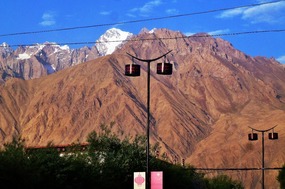
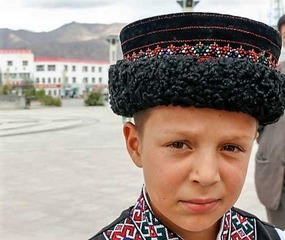
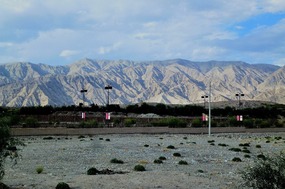
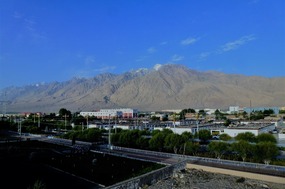
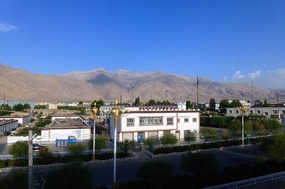
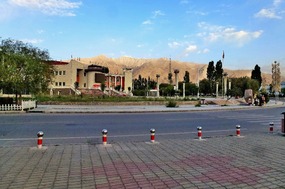
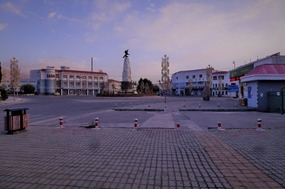
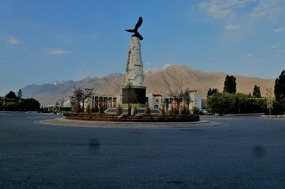
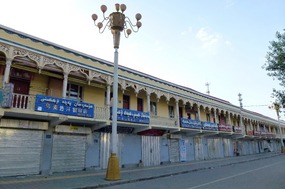
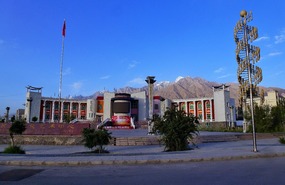
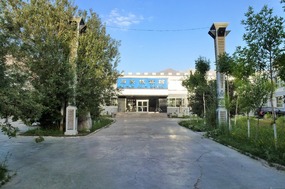
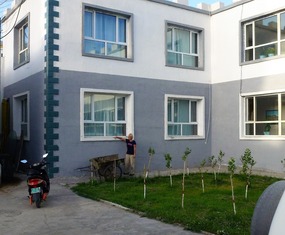
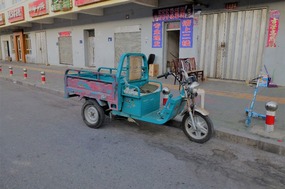
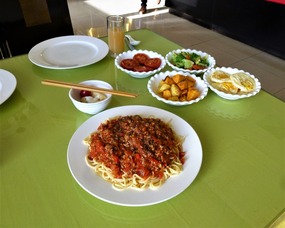
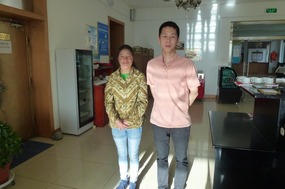
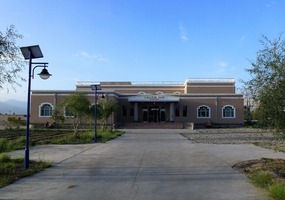
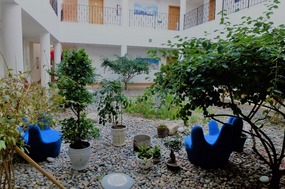
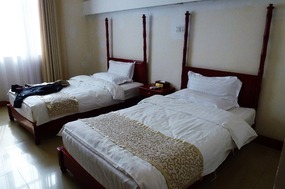
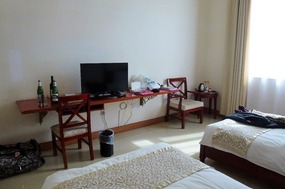
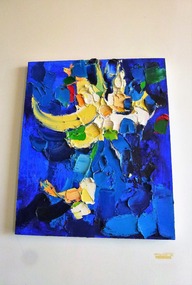
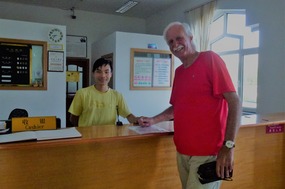
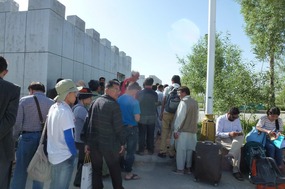
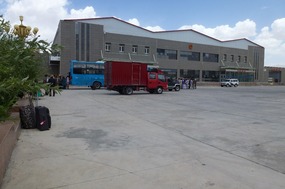
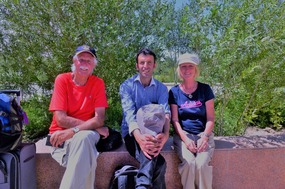
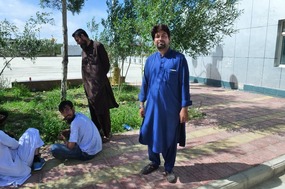
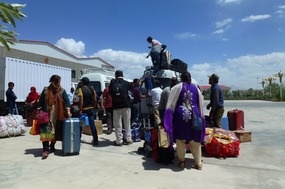
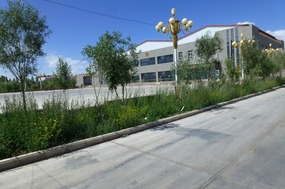
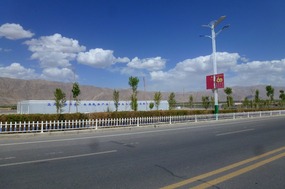
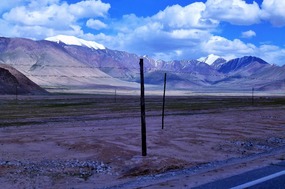
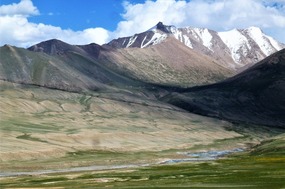
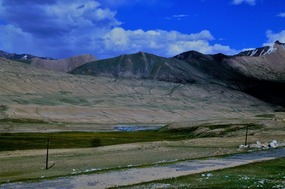
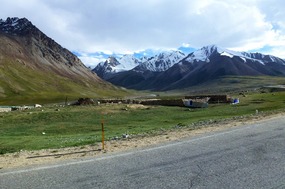
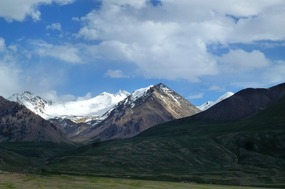
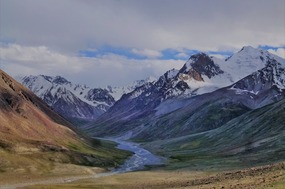
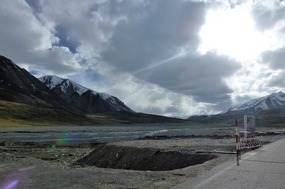
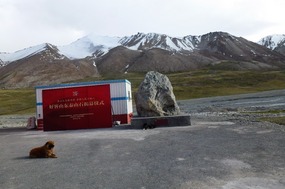
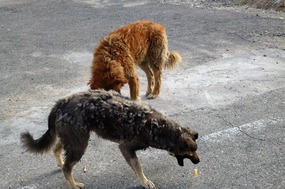
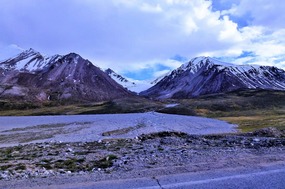
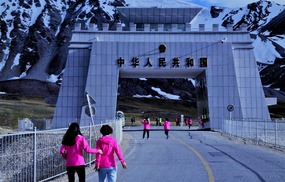
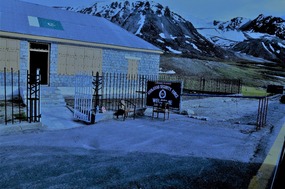
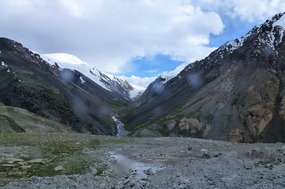
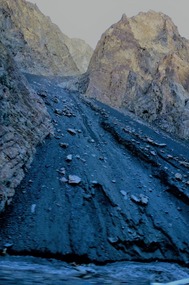
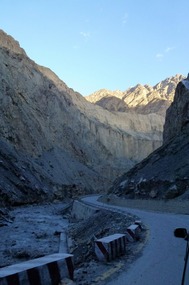
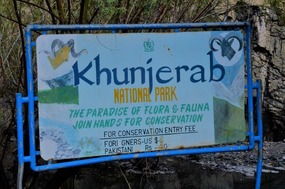
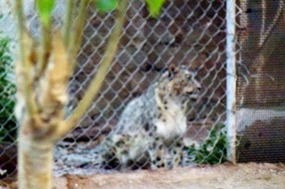
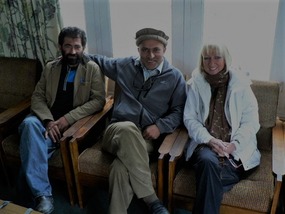



2025-05-23